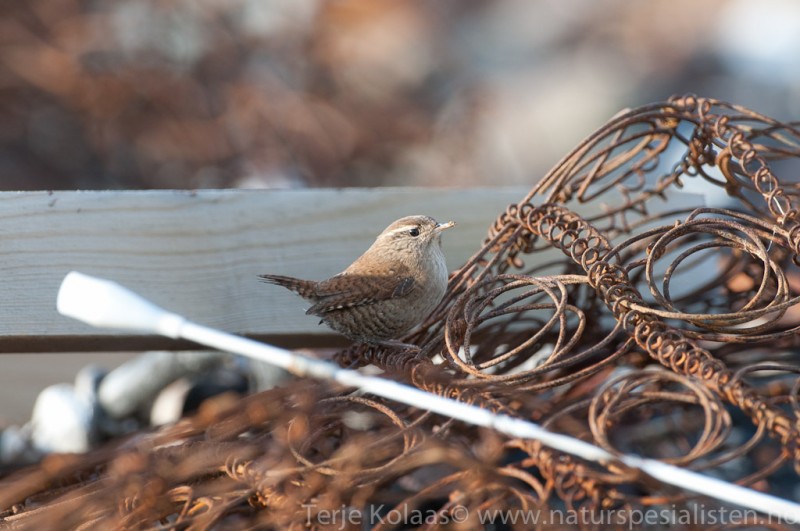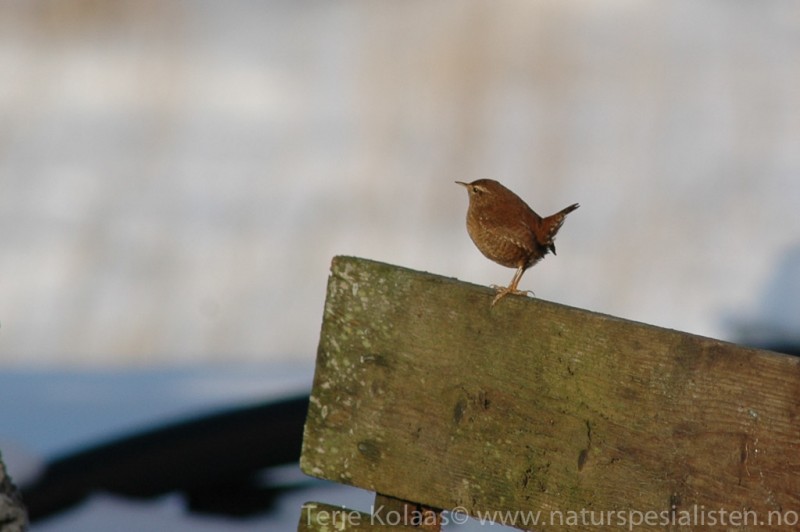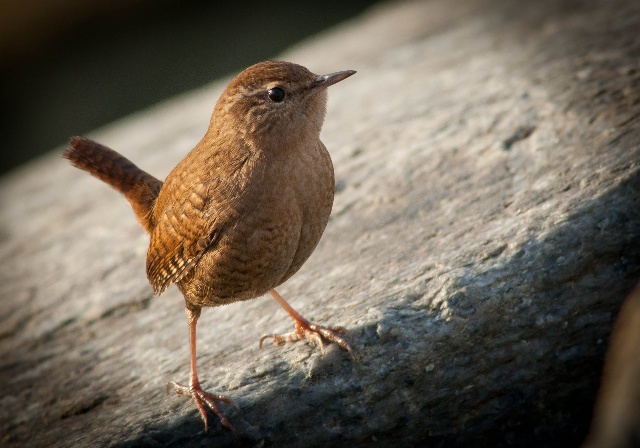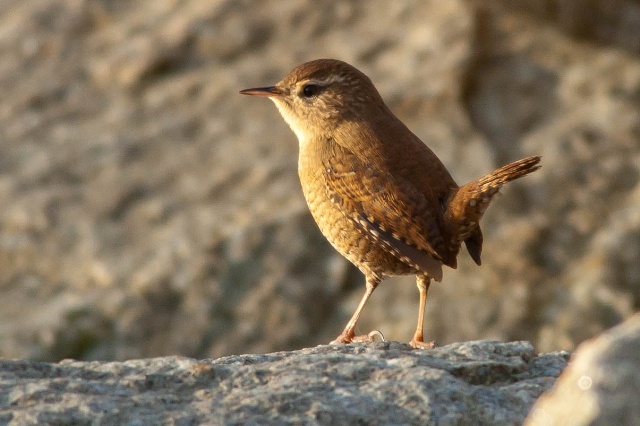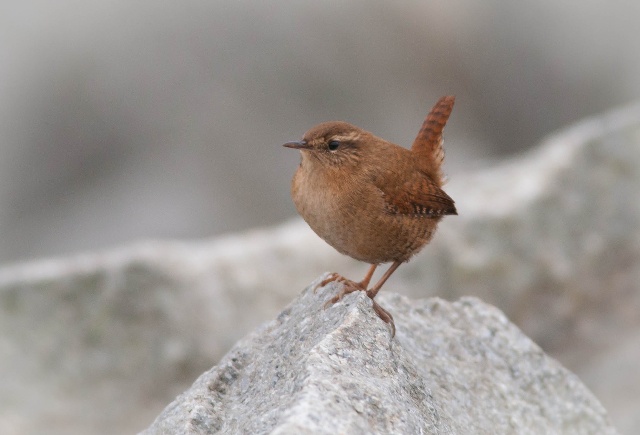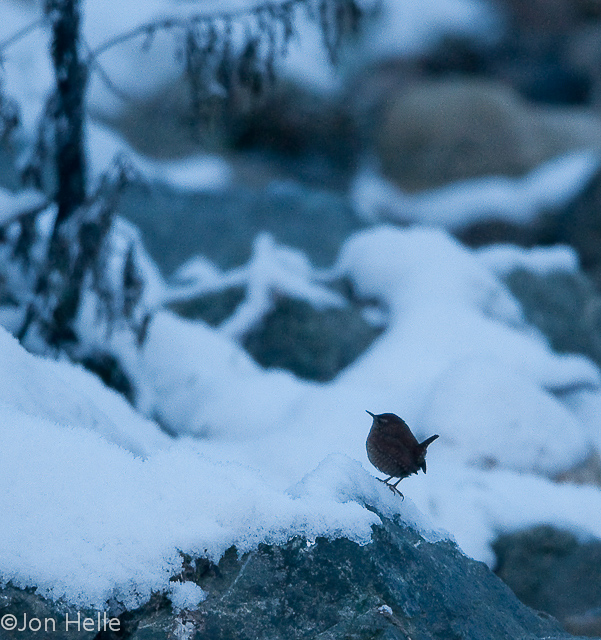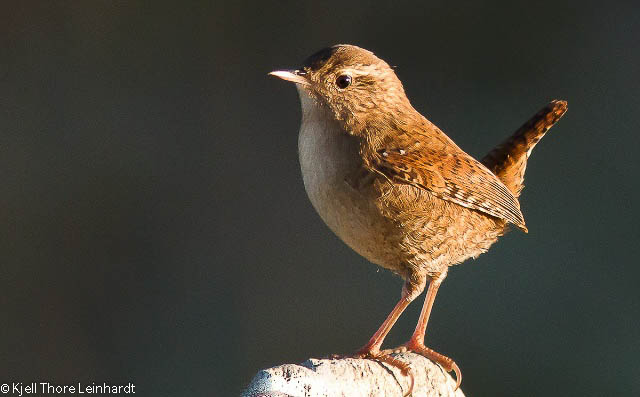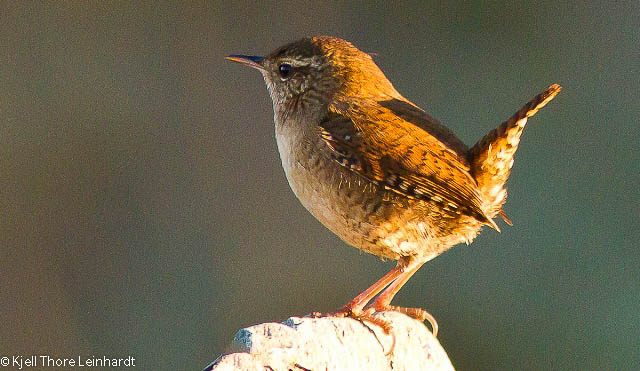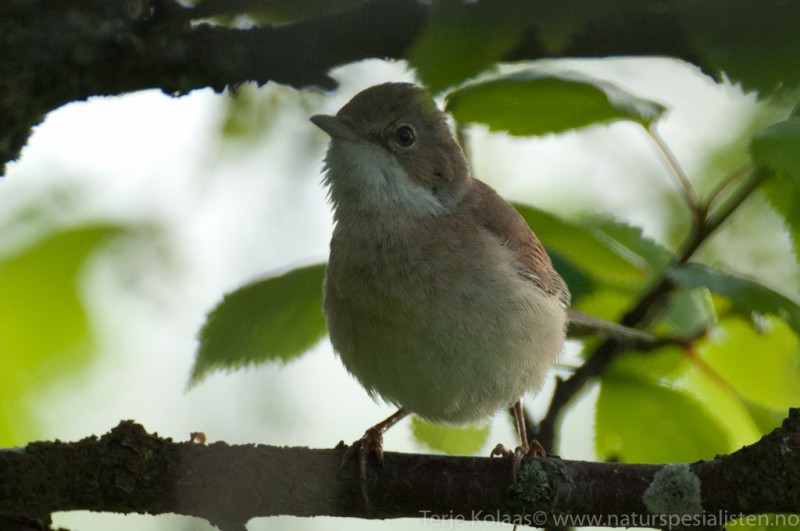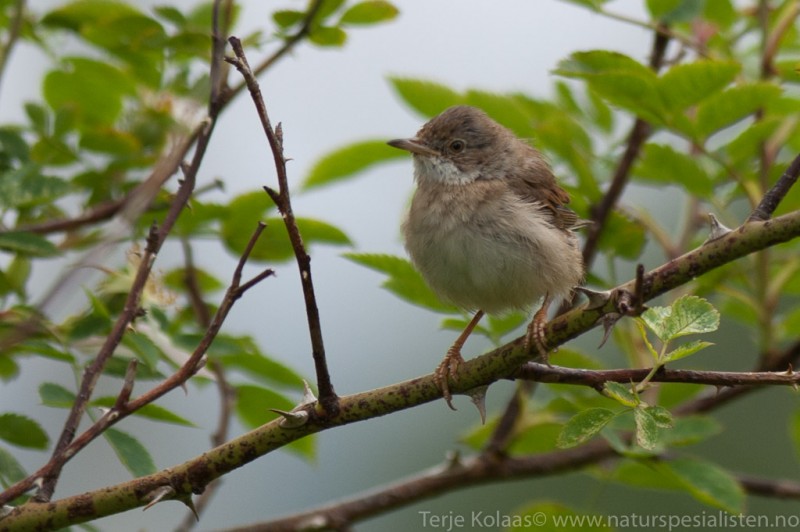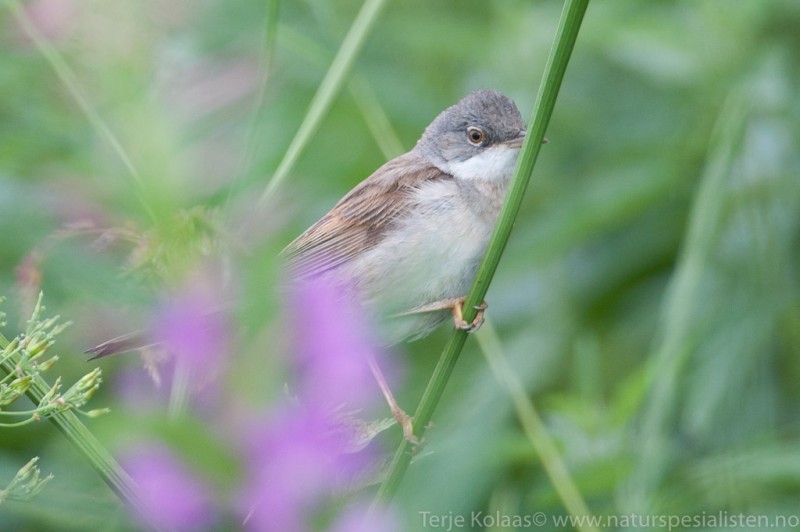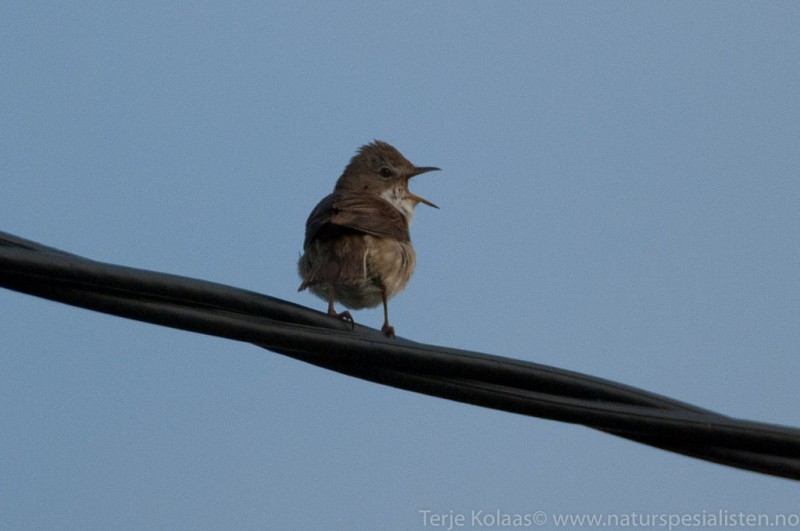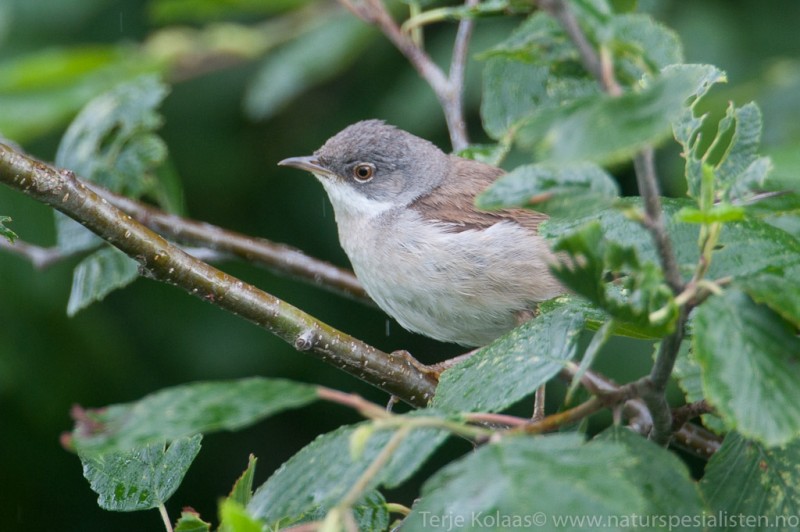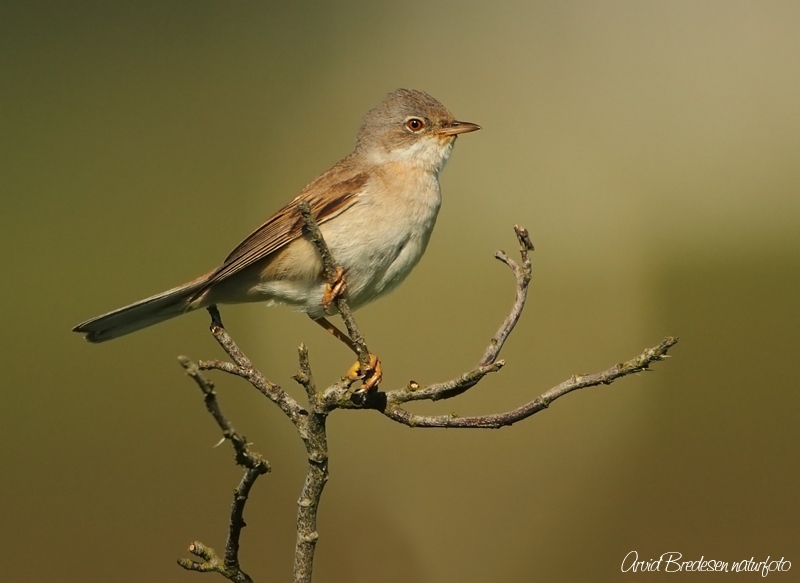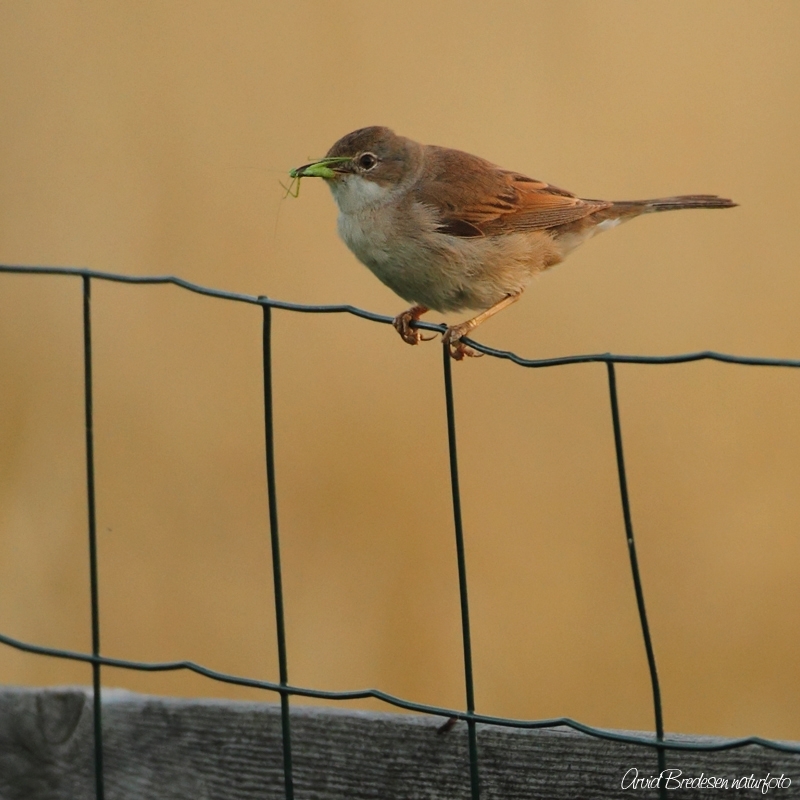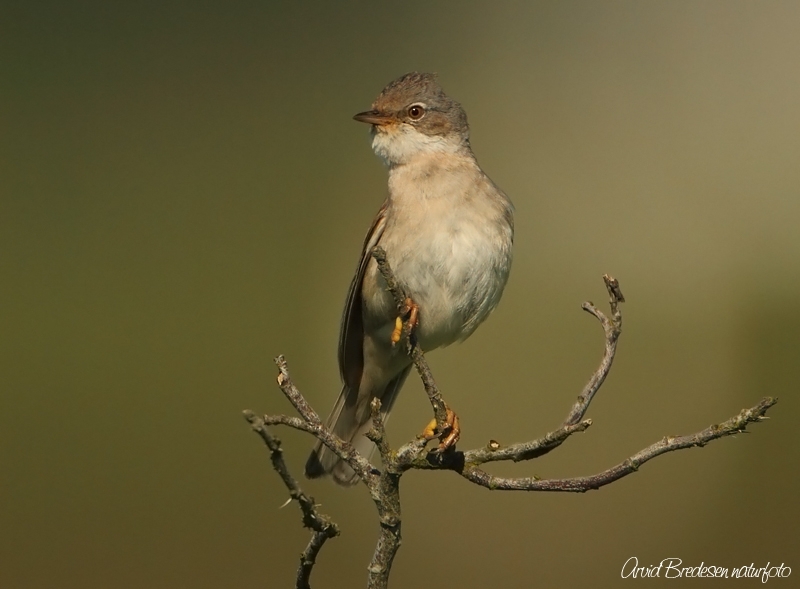Wren (Troglodytes troglodytes)
Whitethroat (Curruca communis)
Unmistakable. Very small, mouselike bird with short rounded wings, short neck and upright tail. Upperparts chestnut brown and finely barred. Underparts light buff. Forages in thick undergrowth and low bushes, crevices and holes for insects. Easily overlooked, but betrays its presence by its big voice. One of the smallest bird in northern Europe.
Sound:Song surprisingly loud. A high-pitched stream of clear notes resembling Robin and Dunnock in timbre. Differs from those in showing frequent shifts in pitch with much larger register than Dunnock, and by the unique, numerous, interspersed long trills. Warning call a short hard "teck", like banging two rocks together. Often repeated in series when excited to form machine-gun-like "firing".
Alarm call, song:
Distribution:
Wikipedia: map (se also Xeno-canto below)
Ecology:Birdlife ecology
Links:
Observation.org Latest observations
Image search Flickr NB! May give other species
CCFairly large warbler with long tail, giving the whole bird an elongated look. Tertials, secondaries and coverts with rufous fringes in contrast to greyish brown back. Underparts pale with buff flanks. Outer tail feathers white. Steep forehead and white throat. Males with slate grey head.
Sound:Variable. Usually recognized by fairly concise phrase, usually with three ascending and descending parts. Often ends with more indistinct mimicry, or subsong. May omit characteristic phrase and sing more cryptic for periods of time, and may be more difficult to identify. Warning call a harsh, drawn "weeet", usually with accented ending, sometimes rising abruptly in pitch.
Alarm call, song:
Distribution:
Xeno-canto: map
Ecology:Birdlife ecology
Links:
Observation.org Latest observations
Image search Flickr NB! May give other species
CC
 English
English Albanian
Albanian
 Armenian
Armenian
 Bulgarian
Bulgarian
 Catalan
Catalan
 Croatian
Croatian
 Czech
Czech
 Danish
Danish
 Dutch
Dutch
 Finnish
Finnish
 French
French
 Georgian
Georgian
 German
German
 Greek
Greek
 Hungarian
Hungarian
 Italian
Italian
 Latvian
Latvian
 Lithuanian
Lithuanian
 Macedonian
Macedonian
 Norwegian
Norwegian
 Polish
Polish
 Portuguese
Portuguese
 Romanian
Romanian
 Russian
Russian
 Sami : Lule sami
Sami : Lule sami
 Sami : North sami
Sami : North sami
 Sami : South sami
Sami : South sami
 Scientific names
Scientific names
 Serbian
Serbian
 Spanish
Spanish
 Swedish
Swedish
 Ukrainian
Ukrainian

